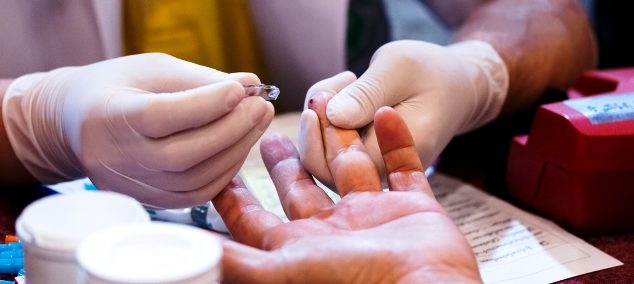Opinion
Rare-disease patients seek lawmakers’ support
 A medical technician prepares to draw blood from a patient. (Photo: Ruchuda Boonplien, via Shutterstock)
A medical technician prepares to draw blood from a patient. (Photo: Ruchuda Boonplien, via Shutterstock)The worry of a mother for her child never ends. I am the sole caretaker of my adult daughter who suffers from multiple rare diseases. Her conditions hold her from living independently. During her 35 years of life and her 12 years of living with her chronic conditions, I cannot remember the many times that she almost died.
My story, though, is not unique.
There are thousands of Californians who live with more than one rare condition and who suffer from misdiagnosis due to underfunding in research and treatments. After decades of being her sole advocate help is on its way with Senate Bill 247, which would give thousands of patients like her a united voice.
Rare diseases are difficult to diagnose and treat. Specialized care is in short supply and treatments can be complex.
Senate Bill 247, authored by Senator Susan Talamantes Eggman (D-5th,) would establish a rare disease advisory council (RDAC) with a rare disease Ombudsperson appointed by the Governor which would lead efforts to help support patients within the myriad of the state’s health and social service agencies. It would also be tasked with creating a rare disease plan for the state and develop methods to educate health care providers on the social and economic burden of rare diseases.
Additionally, the Ombudsperson would be a valuable advisory body to state leaders on rare disease research, beneficiary access to treatments, and best practices for the care of those with rare diseases.
I have experienced the struggles and frustration of taking my daughter to doctors only to be told they could not figure out what was wrong with her or how to treat her. At times, she was identified as a “complicated” case and therefore I had few options, and there were no options to turn to for treatments and resources. Other times, doctors would want to help but did not know where to turn to.
Rare diseases are difficult to diagnose and treat. Specialized care is in short supply and treatments can be complex. Evidence-based treatment and rehabilitation research is done at small scale. Data collection is scarce. The development of new medicines and treatments are slow.
The Council and Ombudsperson would make important progress towards addressing the issues faced by rare disease patients through recommendations on disease representation, specialist physician directories, understanding financial impacts to patients and the state, and communicating what private and public resources may be available to patients and their families across the state.
In creating this council, California would join sixteen other states that have already enacted similar legislation including: Alabama, Connecticut, Illinois, Kentucky, Massachusetts, Minnesota, Missouri, New Hampshire, New York, Nevada, North Carolina, Ohio, Pennsylvania, Tennessee, Utah, and West Virginia.
The Council and Ombudsperson would give rare disease patients a voice to advocate and help plan for the future of rare diseases. Being that my daughter is one of estimated 25 million to 30 million Americans living with a rare disease, I urge the Senate Appropriations committee to support SB 247 which would uplift the quality of life, support research and development, and give a voice to rare disease patients like my Krystal.
—
Editor’s Note: Karen Morey lives in Southern California with her daughter, Krystal.
Want to see more stories like this? Sign up for The Roundup, the free daily newsletter about California politics from the editors of Capitol Weekly. Stay up to date on the news you need to know.
Sign up below, then look for a confirmation email in your inbox.

Leave a Reply